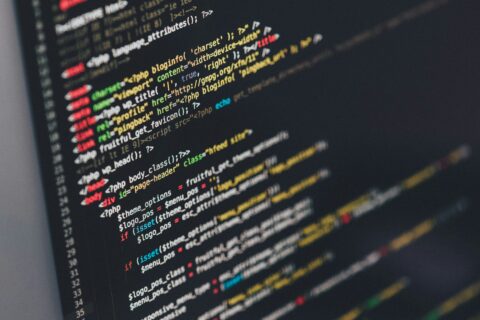Introduction to Artificial Intelligence (AI)
Welcome to the thrilling world of Artificial Intelligence (AI), where cutting-edge technology meets limitless possibilities. In this blog post, we’ll dive into how AI is reshaping the tech industry and revolutionizing the way we live, work, and interact with machines. So buckle up and get ready to explore the fascinating evolution, applications, advantages, disadvantages, future potential impacts, and ethical concerns surrounding AI development. Let’s embark on this exhilarating journey together!
The Evolution of AI
Artificial Intelligence (AI) has come a long way since its inception. Initially, AI was limited to performing simple tasks like playing chess or solving mathematical problems. However, with advancements in technology and the availability of vast amounts of data, AI has evolved rapidly.
The evolution of AI can be attributed to the development of more powerful computer systems and sophisticated algorithms. These innovations have enabled AI to tackle complex problems across various industries such as healthcare, finance, and transportation.
As AI continues to evolve, we are witnessing the emergence of technologies like machine learning and deep learning that allow machines to learn from data without being explicitly programmed. This self-learning capability is revolutionizing how businesses operate and make decisions.
In recent years, AI has made significant strides in areas like natural language processing, image recognition, and autonomous vehicles. With ongoing research and development efforts, the future possibilities for AI seem limitless.
AI Applications in Various Industries
Artificial Intelligence (AI) has swiftly become a game-changer across various industries. In healthcare, AI is being used to analyze medical images, assist in diagnostics, and even personalize treatment plans for patients. The financial sector relies on AI algorithms for fraud detection, risk assessment, and trading optimization.
The retail industry harnesses the power of AI for personalized shopping recommendations based on customer behavior analysis. Manufacturing benefits from predictive maintenance systems using AI to prevent equipment failures before they occur. Transportation integrates AI in autonomous vehicles for safer and more efficient journeys.
In the entertainment sector, AI is revolutionizing content creation with virtual influencers and personalized media experiences. Education leverages AI-powered tutoring systems to provide tailored learning paths for students.
From agriculture to cybersecurity, AI’s adaptability knows no bounds as it continues to shape the future of innovation across diverse sectors.
Advantages and Disadvantages of AI
Advantages and disadvantages of AI are constantly debated in the tech industry. On one hand, AI has the potential to streamline processes, increase efficiency, and improve decision-making. It can analyze vast amounts of data quickly, leading to valuable insights for businesses.
However, there are concerns about job displacement as automation replaces human tasks. Privacy issues also arise with AI’s ability to collect and analyze personal data. Moreover, the lack of transparency in AI algorithms raises questions about bias and accountability.
Despite these drawbacks, many believe that the benefits of AI outweigh its shortcomings. With proper regulation and ethical considerations, AI can continue to revolutionize industries while mitigating risks associated with its development.
As technology advances further, it will be crucial to address these challenges proactively to ensure a responsible integration of AI into society.
The Future of AI and its Potential Impacts
As we look towards the future of AI, the possibilities seem endless. With advancements in machine learning and deep learning algorithms, AI is poised to revolutionize industries across the board. From healthcare and finance to transportation and entertainment, the potential impacts of AI are vast.
One area where AI is expected to make a significant impact is in personalized medicine. By analyzing vast amounts of data, AI can help doctors tailor treatments to individual patients’ genetic makeup and medical history, leading to more effective and efficient healthcare outcomes.
In the realm of customer service, chatbots powered by AI are becoming increasingly common. These virtual assistants can provide instant support to customers around the clock, improving user experience and saving businesses time and resources.
Moreover, with autonomous vehicles on the horizon, AI has the potential to reshape transportation as we know it. Self-driving cars could reduce accidents caused by human error while optimizing traffic flow for smoother commutes.
The future of AI holds immense promise but also raises important questions about ethics and privacy. As we continue down this technological path, it will be crucial to address these concerns proactively to ensure that AI benefits society as a whole.
Ethical Concerns Surrounding AI Development
As the tech industry continues to push the boundaries of innovation with artificial intelligence, it is crucial to address the ethical concerns surrounding AI development. While AI offers immense potential for advancement and efficiency, there are valid worries about privacy invasion, job displacement, bias in decision-making algorithms, and even existential risks.
It is imperative for developers, policymakers, and society as a whole to work together in establishing clear guidelines and regulations that ensure AI technologies are developed and utilized responsibly. By addressing these ethical concerns head-on and prioritizing transparency and accountability in AI systems, we can harness the full benefits of this groundbreaking technology while mitigating potential risks.
In this rapidly evolving digital landscape, embracing a thoughtful approach towards AI ethics will be key in shaping a future where artificial intelligence truly serves humanity’s best interests. Let us tread carefully but boldly into this new era of technological revolution guided by principles that uphold the values of fairness, equity, and respect for all individuals impacted by the power of artificial intelligence.







